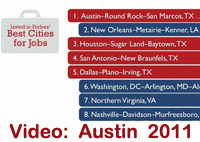Austin Home Buyer Information (FAQ)

I've heard that the process of moving to your next home is one of the more stressful events in life. My goal is to make your home-buying experience as pleasant and rewarding as possible. I have years of experience in the Austin area market, and based on your unique situation I will be able to inform, advise and guide you every step of the way.
The growing list of frequently asked questions below should help the first-time buyer as well as someone who has purchased a home before, because each individual is sure to have questions. Here, I've tried to cover a wide range of topics to help you better understand some of the elements of buying a home in Austin, Texas. Just click on a topic.
Whether you are ready to begin your Austin home search or just have some preliminary questions, feel free to contact me. My success in Austin real estate has been the result of helping someone just like you!
What is the difference between a Realtor® and a licensed agent?
Holding a real estate agent's or real estate broker's license does not make someone a Realtor®. Membership in the National Association of Realtors entitles licensees to use the term "Realtor®" on their business cards and in their marketing materials.
Being a Realtor® has many benefits, including group discounts on products and services, participation in multiple listing services, and continuing education opportunities.
However, the most valuable benefit is the Realtor® Code of Ethics. This code creates the true value that makes the real estate business a profession. It ensures that, in business involving a Realtor®, the client's interests are protected.
Just what is “Buyer Representation” and what is involved?
Until a few years ago, the listing agent and the selling agent in Texas represented the Seller. As a result of the agency law mandated by the Texas Legislature, a Buyer can have an agent represent their interests. Sellers have a Listing Agreement with their agent; Buyers now have Buyer Agreements available to them. Services to the Buyer will include such things as:
- advise you about market trends and financing
- review an analysis of markets, neighborhoods and properties
- assisting you in negotiating the best price and terms
- assisting you with the inspection process and any additional negotiation
- representing your interests throughout the transaction
When we first meet, I will give you a document called “Information About Brokerage Services”; it is provided by the Texas Real Estate Commission, and explains the various types of representation. Agents in Texas are required by law to present you with this form. The form is for information purposes only - it is not an agreement of any kind.
I will go over the Agreement with you and give you examples of the services I can provide with and without a Buyer Agreement. You can then decide on the type of representation you want. The Buyer Agreement can be for whatever length of time you are comfortable with, and can be extended upon our mutual consent.
What types of mortgage financing are there?
In general, there are three broad categories of loans available:
- Convention vs Government Loans — Most mortgage loans are made by savings institutions, banks and mortgage companies. On government (FHA and VA) loans, the government does not actually loan the money but rather guarantees (or insures) the top 20% to the lender if you were to default for some reason. Generally, a lender will require you to purchase mortgage insurance if you are putting less than 20% down. This insurance may be paid at closing or added to the loan amount. VA loans are insured by the government, but only qualified veterans may apply for them. FHA and VA loans have important advantages - their interest rate does not change if the loan is assumed, provided the borrower qualifies; they generally require a lower down payment than conventional loans and feature lower closing costs for the borrower. One the negative side, government loans limit the amount you can borrow, often take longer to process, and have higher closing costs to the seller.
- Fixed Rate vs Adjustable Rate — On a fixed rate mortgage, the interest rate stays the same over the life of the loan, usually 15 or 30 years. That means your payment will not change except for tax and insurance adjustments. Adjustable rate mortgages go by a variety of names, but basically these loans have interest rates or monthly payments that fluctuate over time according to a pre-determined index. These mortgages typically start out with a lower interest rate, lower monthly payments, and lower fees and points than fixed rate mortgages. They often appeal to first-time home buyers, younger couples who expect their incomes to grow in the coming years. If you consider an adjustable rate mortgage, ask the lender to explain the terms fully. Also ask about the index that will be used to calculate future interest rates and how index changes will affect your mortgage.
- Assumable vs A New Loan — Some loans, particularly FHA and VA loans as well as some adjustable rate mortgages, are assumable. That means a buyer can assume an existing loan usually on the same terms as the previous owner. Assuming a loan may save some costs and time. As the buyer, you may pay the lender a fee at closing for processing the assumption and most lenders will require you to qualify for the existing loan. Buyers are assume loans because the interest rate is lower than current rates for new loans. So as a buyer, you get a lower interest rate but you can only assume the existing loan balance; the difference in the loan balance and the sales price must be paid in cash or financed on a second lien.
What is the best way to evaluate mortgage lenders?
When shopping for a mortgage, while the interest rate is important, don't judge the financing by the interest rate alone. Compare several items in the loan package, including:
- Points and Junk Fees — A "point" or "discount point" is one percent of the loan amount. On a low-interest-rate loan, points can be double those for a loan with a higher interest rate, causing you to pay more up front at closing. Also, some lenders are fond of charging "junk fees" at closing, which enable them to make up for a lower interest rate.
- Total Fees Charged by the Lender — Some lenders will absorb the cost of many services, while other do not, so ask in advance.
- Term — In general, the longer the life of the loan and the more fixed the payment, the more you can expect to pay in interest. For example, with a 30-year fixed-rate loan you will pay interest equivalent to what you originally borrowed by the 15th year, at current rates. You may wish to consider 15 or 20-year fixed rate loans as well.
- Penalties — Ask what penalties will be charged if you pay off the note early. You may wish to refinance the loan at a more attractive rate at a later time. An existing prepayment clause could require you to pay a penalty if you pay off the loan early.
How can I, as a Buyer, make the property selection process more efficient?
One important thing you can do is making a list of your needs and wants; needs will take priority. Once your list is made, review it and decide what is most important to your lifestyle. It may be privacy, security, location, number of bedrooms or recreation, to name a few. Decide which items are musts and which you are willing to give up. We will discuss this list in detail so that I can better assist you with the home search.
Deciding where you want to live may be the single most important factor in choosing a home. Location affects your day-to-day living, and it influences value significantly, so consider this carefully. Your choice of location may be limited somewhat by price or other factors. Even so, make sure you consider such things as:
- Prices of properties and property taxes.
- Distance to work, schools, shopping, and entertainment.
- Proposed changes in land use (shopping centers, highways, airports, etc.)
From this point forward, I will be giving you a great deal of information. Be sure and ask questions about anything you are unsure of. Whether you have purchased before or not, I will ensure that you understand every step of the process.
Anything I should know about for-sale-by-owners?
Our Buyer Agreement covers all homes for sale, including For Sale By Owner (FSBO) properties. I will be happy to arrange for you to see those properties as well.
What is involved with making an offer?
I can help you find a home that you will be delighted with, and as your Buyer’s Agent I can assist you in what a prudent offer would be, but only you can decide how much you are willing to offer for it. Once you have determined the price, I will help you prepare a written offer using the various forms provided by the Texas Real Estate Commission. The contract and addenda are the most important papers you will sign because they lay out all the terms and conditions of the transaction. The Agreement will contain such things as:
- The names of the Buyer and Seller.
- The address and legal description of the property.
- Any property that will be transferred with the home.
- The price, financing conditions and contingencies.
- The amount of earnest money deposit.
- The name of the escrow agent and title company.
- Who pays for the title policy and survey.
- Whether you has received the Seller’s Disclosure, which we will carefully review.
- An option period with option money.
- Dates of closing and possession.
- Any special provisions.
- Fees to be paid at closing and by whom.
- A list of addenda, which are also part of the contract.
- And more…
With a previously-owned home you may also want to investigate the possibility of having a residential service contract, also referred to as a home warranty. Such a contract is an agreement with a residential service company that certain items will be repaired by the company for one year if they fail to function. Such items include plumbing, A/C and electrical systems and more depending on your coverage. There is no deductible, but you pay a $60 service fee to the repair person. If you purchase a new home, the builder and manufacturer warranties would apply.
Once you and the seller agree to the terms of the offer, and all parties sign and initial any changes, the document becomes a binding contract. Your option money will be given to the Seller and your earnest money will be deposited with the escrow agency. Before the option period expires, we will need to be sure that the condition of the property meets your expectations.
As your Buyer’s Agent, I will counsel you every step of the way!
What can be expected at closing?
The closing is the end of weeks or even months of research and decision making. The closing could last less than an hour but may take longer, depending on the complexity of the transaction. It often occurs at the office of a title company or attorney. The closing agent will have an impressive stack of documents, most of which will be from your lender for you to sign; the seller's side has much fewer papers. The closing agent will explain each document; after each document is explained, you will be asked to sign it. You will be presented with numerous papers, so be sure to review them carefully, and be sure and ask questions if you do not understand anything. As a final step, you will give the closing agent your cashier's check for their down payment and closing costs - personal checks are not acceptable. The cashier's check will need to be made out to the title company or attorney who is closing the transaction. Funding will normally occur within a few hours, upon a final review by your lender, and the closing will become final. This is an important event, and I will be there to assist in any way that I can. One of my goals is to overcome any problems with the transaction well ahead of the closing, so that it proceeds smoothly.
Coldwell Banker™ is a registered trademark licensed to Coldwell Banker Real Estate LLC. An Equal Opportunity Company. Equal Housing Opportunity. Each office is independently owned and operated.




